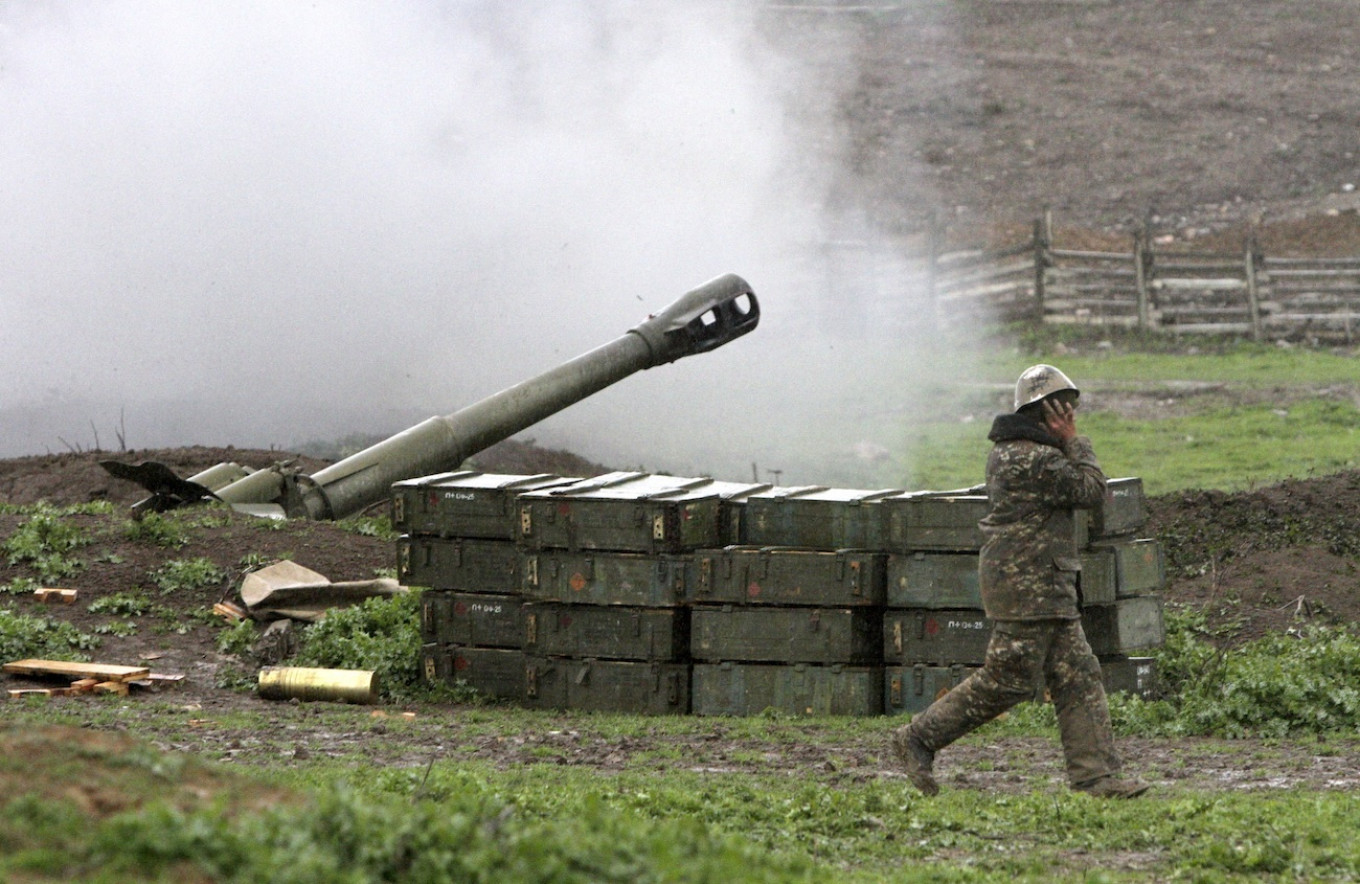
Fierce fighting raged between Azerbaijani and Armenian forces on Monday, sparking bellicose rhetoric from regional power Turkey despite international pleas for a halt in fighting between the longtime enemies.
Armenia and Azerbaijan have been locked in a territorial dispute over the ethnic Armenian region of Nagorno-Karabakh for decades, with deadly fighting flaring up earlier this year and in 2016.
The region declared its independence from Azerbaijan after a war in the early 1990s that claimed 30,000 lives but is not recognized by any country — including Armenia — and is still considered part of Azerbaijan by the international community.
Fighting between Muslim Azerbaijan and majority-Christian Armenia could embroil regional players such as Russia, which has a military alliance with Armenia, and Turkey, which backs Azerbaijan.
Karabakh’s defense ministry said 27 fighters were killed in fighting Monday — after previously reporting 28 — bringing their total military losses to 58.
The overall death toll rose to 67 including nine civilian deaths: seven in Azerbaijan and two on the Armenian side.
Azerbaijan has not reported any military casualties, but Armenian separatist officials released footage showing burnt-out armored vehicles and the bloodied and charred remains of soldiers in camouflage it said were Azerbaijani troops.
Azerbaijani President Ilham Aliyev on Monday ordered partial military mobilization and General Mais Barkhudarov vowed to “fight to the last drop of blood in order to completely destroy the enemy and win.”
With each side blaming the other for the latest fighting, world leaders have urged calm as fears rise of a full-scale conflict.
Kremlin spokesperson Dmitry Peskov said Russia was monitoring the situation closely and that the current priority was to “stop the hostilities, not to deal with who is right and who is wrong.”
But Turkish President Recep Tayyip Erdogan demanded Armenia end its “occupation” of Karabakh.
“The time has come for the crisis in the region that started with the occupation of Nagorno-Karabakh to be put to an end,” Erdogan said.
“Now Azerbaijan must take matters into its own hands.”
Mercenaries from Syria
Armenia has accused Turkey of meddling in the conflict and sending mercenaries to back Azerbaijan.
A war monitor Monday said Turkey has sent at least 300 proxies from northern Syria to join Azerbaijani forces.
Turkey informed the fighters that they would be tasked with “guarding border regions” in Azerbaijan in return for wages of up to $2,000, said Rami Abdul Rahman, the head of the Britain-based Syrian Observatory for Human Rights.
The report comes after the European Union warned regional powers not to interfere in the fighting and condemned a “serious escalation” that threatens regional stability.
In addition to the EU and Russia, France, Germany, Italy and the United States have urged a ceasefire.
Armenian defense ministry spokeswoman Shushan Stepanyan said heavy fighting had continued early Monday morning and Armenian separatist forces had won back positions taken Sunday by Azerbaijan.
But Baku claimed further advances.
Azerbaijani forces “are striking enemy positions… and have taken several strategic positions around the village of Talysh,” the defense ministry said.
“The enemy is retreating,” it added.
Armenian military officials said Azerbaijani forces were continuing to attack rebel positions using heavy artillery, while Azerbaijan’s defense ministry accused separatist forces of shelling civilian targets in the town of Terter.
‘We are not afraid of war’
Baku claimed to have killed 550 separatist troops, a report denied by Armenia.
The escalation has stirred an outpouring of patriotic fervor in both countries.
“We have been waiting for this day for so long. The fighting must not stop until we force Armenia to return our lands,” Vidadi Alekperov, a 39-year-old waiter in Baku, told AFP.
“I’ll happily go to the battlefield.”
In Yerevan, 67-year-old Vardan Harutyunyan said Armenia had been anticipating the attack.
“The (Karabakh) question can only be resolved militarily. We are not afraid of a war,” he said.
Armenia and Karabakh declared martial law and military mobilisation Sunday, while Azerbaijan imposed military rule and a curfew in large cities.
Talks to resolve the conflict — one of the worst to emerge from the 1991 collapse of the Soviet Union — have largely stalled since a 1994 ceasefire agreement.
Analysts told AFP that international brokers needed to step up their efforts to prevent an even worse escalation.
France, Russia and the United States have mediated peace efforts as the “Minsk Group” but the last big push for a peace deal collapsed in 2010.
